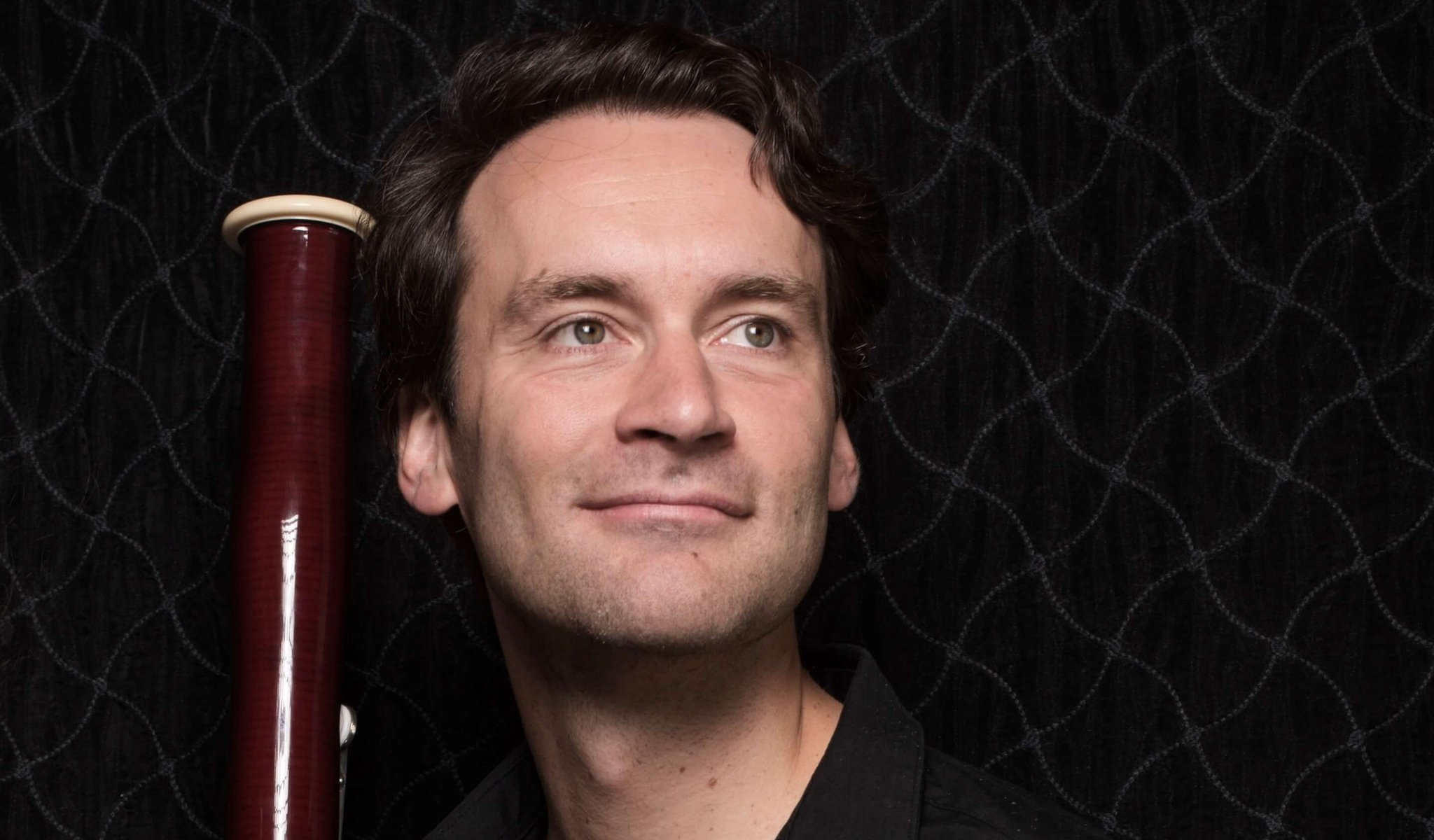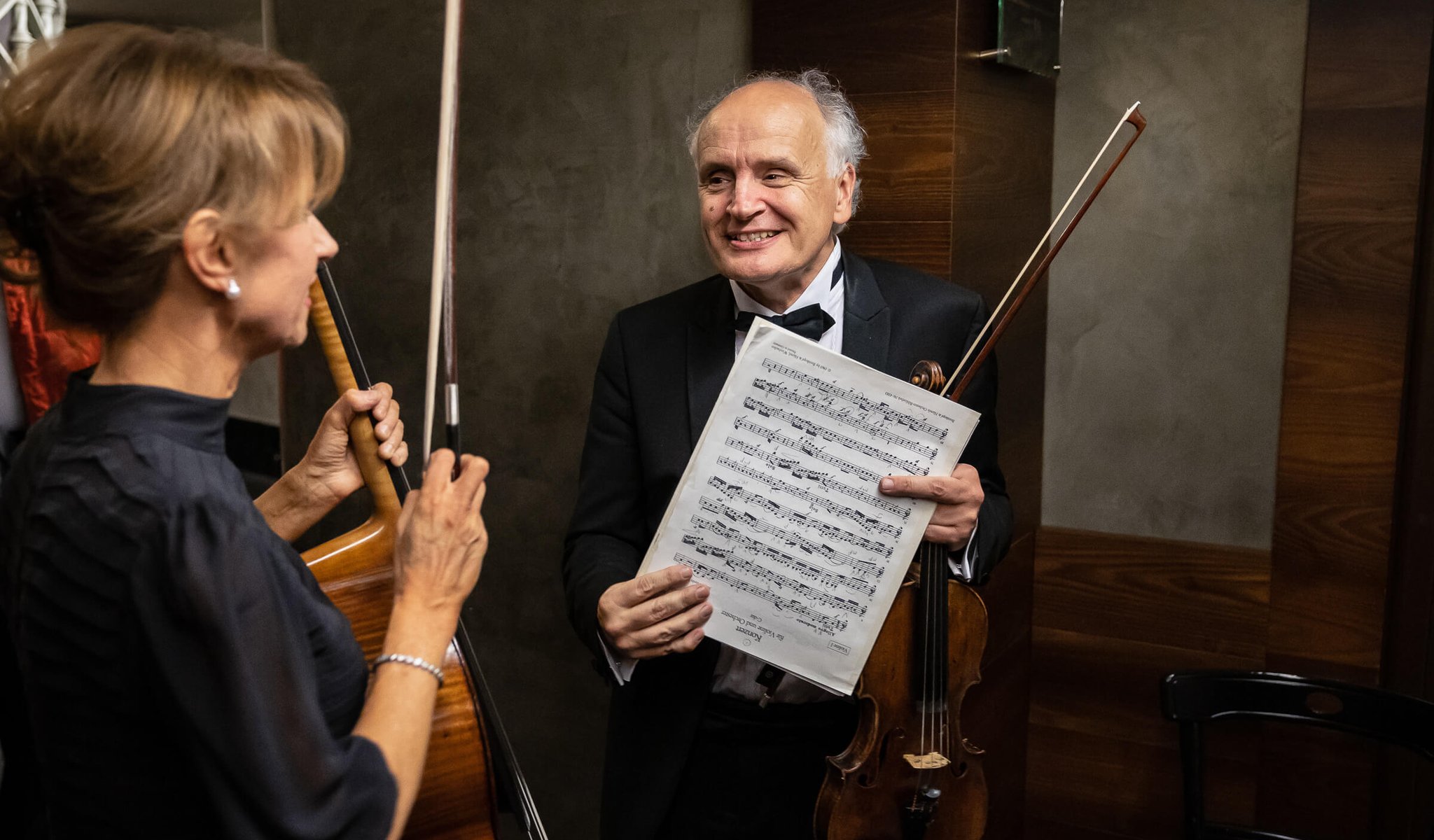

Program
Featuring
Other information
The event is about 2.5 hours long.
About the event
If he had only one bassoonist to listen to for the rest of his life, it would be him – a journalist for The Spectator has said of the music of Bence Bogányi. This time, the Budapest Festival Orchestra’s musician will play the solo of Jean Françaix’s rarely performed concerto. An easily palatable piece reminiscent of tango or ragtime music, the work will serve as the backbone of the season’s first Concertino performance. Led by János Pilz, this concert of the chamber music series comes as winter gives way to spring. The performance will begin with movements from Purcell’s theater accompaniment music, telling the tragic and shocking story of the Moor Abdelazer and the Queen of Spain. In the second half of the event, Britten’s series of variations serves as an example of a student’s tribute to their teacher: written to the theme of his composition teacher, Frank Bridge, the work is what delivered Britten fame.
Aphra Behn, a prominent female dramatist of her time, was regularly criticized over the immorality of her plays. Certainly, the story of Abdelazer, who seduces the wife of the Spanish king while in captivity and then joins forces with her to murder the king, is no fairytale. The plot includes adultery, betrayal, violence and murder, and ultimately, both the queen and the title character die. Theater pieces in the late 17th century were regularly performed with accompanying music, designed to indicate the beginning and end of the piece, and the beginnings and ends of each act, among others. Purcell’s nine movements written for string instruments include overtures, airs and period dances. Premiering in 1695, the year of the composer’s death at the age of thirty six, the piece also appeared several years later as a suite.
Composing light and pleasant music nonetheless full of content, Jean Françaix was a specialist of the woodwinds. His 1979 concerto was dedicated to bassoonist Maurice Allard. The opening movement – misleadingly – opens with crying orchestral measures, which are immediately resolved by the tango-like music of the bassoon, rich in extended rhythms. Following a lyrical middle part, the movement concludes with a slow solo and an orchestral downbeat. Next, an introduction-like, bouncy scherzando follows with a middle section reminiscent of a movie score, with plenty of scales and repeated melodies for the bassoon section; the slow movement, initially timid before shining brightly, is introduced by the ominous music of the low strings. Launching with rectangular motifs, the finale recalls the first theme of the opening movement in the bassoon cadenza, before the closing notes.
“For F. B.: A tribute with affection and admiration,” Britten wrote at the beginning of the score, wrapping up the composition after four weeks. The double lines at the end conclude a series of variations on a string quartet theme originally written by his teacher, the composer and violist Frank Bridge. Britten himself also played the viola, and the piece therefore features very finely crafted string textures. The ten variations serve both as genre parodies and presentations of Britten’s exceptional personal qualities. This is how Bridge himself (theme) is presented, followed by his integrity (adagio), energy (march), charm (pastorale), humor (Aria Italiana), tradition (bourrée), enthusiasm (waltz), vitality (tremolo), sympathy (funeral march) and reverence (unheimlich), before a fugue and the finale conclude the piece.
Did you know? Purcell composed his incidental theatrical music in 1696; Françaix’s concerto premiered in Frankfurt on May 20, 1980, with Horst Winter performing the solo and Stanislav Macura conducting; Britten’s Variations premiered in Salzburg on August 27, 1937, with Louis Boyd Neel conducting; this will be the Budapest Festival Orchestra’s first performance of all three pieces.
Contemporary events: French composer Marc-Antoine Charpentier wrote his motet Ego mater agnitionis in 1696 / Hapsburg emperor and king Leopold I placed the Hungarian Chamber under the authority of the court in Vienna on August 27, 1696 / Italian author Umberto Eco’s novel The Name of the Rose was published in 1980 / U.S. president Jimmy Carter on January 20, 1980 called on the entire world to boycott the Moscow Olympic Games / French composer Claude-Michel Schönberg’s musical Les Misérables premiered in Paris on September 17, 1980 / Marshal Mikhail Tukhachevsky and seven of his partners were sentenced to death in Moscow in 1937 for “organizing a treasonous conspiracy” / English author J. R. R. Tolkien’s novel The Hobbit was published in 1937 / Hungarian-Indian painter Amrita Sher-Gil painted her depiction Bride’s Toilet in 1937 / Russian composer Igor Stravinsky’s piece Card Game premiered in New York on April 27, 1937, with the composer conducting the performance